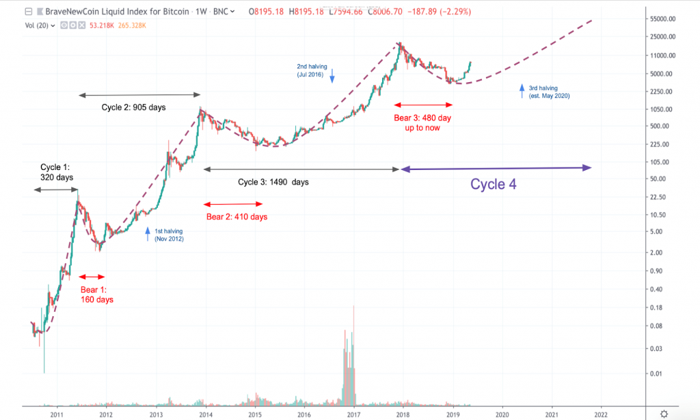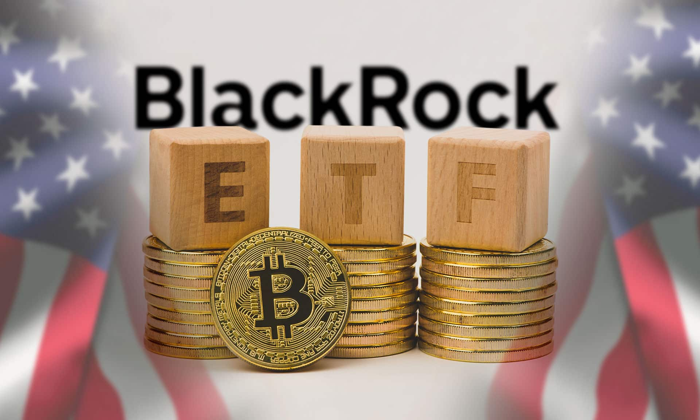Bitcoin, the pioneering cryptocurrency, has evolved from niche digital asset to a cornerstone of the financial ecosystem, attracting the attention of investors and regulators alike. As the BTC market sentiment fluctuates amidst ongoing uncertainties regarding U.S. crypto laws, the implications of potential regulatory actions are becoming increasingly pronounced. Reports indicate that the looming threat of crypto regulation may dampen Bitcoin’s demand, causing market participants to reassess their strategies. Additionally, as inflows into Bitcoin-focused ETFs continue to rise, the intricate interplay of investor behavior and regulatory developments underscores the significance of these investments. It’s crucial to understand how upcoming decisions might shape the landscape of cryptocurrency and impact the broader market.
The world of digital currencies, particularly Bitcoin, remains a dynamic space filled with both opportunities and challenges. Often referred to as BTC, this leading digital currency is now at the forefront of discussions about future regulatory frameworks in the crypto landscape. As legislation evolves, investor confidence seems to waver, raising questions about how several factors—including market sentiment and crypto ETF inflows—might reflect on Bitcoin’s stability. Furthermore, the approach to regulating cryptocurrencies in the U.S. can have far-reaching consequences, impacting everything from trading volumes to public interest and overall cryptocurrency demand. Therefore, staying informed on these regulatory shifts is imperative for those engaged in the cryptographic economy.
The Impact of Regulatory Uncertainty on Bitcoin
Bitcoin (BTC) has long been at the center of discussions around regulatory frameworks in the U.S. The recent hesitance demonstrated by Senate Democrats to advance stablecoin legislation has raised significant concerns in the crypto community. Investors and stakeholders were optimistic about the potential for formal regulations that would provide a clearer landscape for cryptocurrency operations. However, as skepticism grows regarding both the passage of these regulations and the influence of political figures on market decisions, BTC’s market sentiment has begun to reflect these uncertainties. This precarious atmosphere presents a challenge for Bitcoin’s sustained demand, as potential investors may opt to remain sidelined until a more definitive regulatory picture emerges.
The implications of regulatory setbacks extend beyond immediate market sentiment; they could ripple through the entire cryptocurrency ecosystem. As key players like President Trump engage in discussions related to crypto ventures with potential conflicts of interest emerging, it becomes necessary for investors to approach the Bitcoin market with caution. Market analysts emphasize that the uncertain regulatory environment may stifle growth and innovation within the sector, leading to diminished demand for Bitcoin and impacting prices significantly. In this scenario, the waiting game continues as investors aim to gauge the ultimate impact of such regulations on Bitcoin’s viability.
Bitcoin Demand: Trends Amidst Economic Changes
The demand for Bitcoin is currently witnessing a notable decline, raising alarms among market analysts and investors alike. Recent reports from CryptoQuant indicate that there is a marked decrease in demand from U.S.-based investors, which coincides with a downward trend in BTC prices. This shift could be attributed to ongoing macroeconomic conditions alongside regulatory delays; as investors become increasingly cautious, they may be opting for more stable investment avenues. Understanding these shifts in demand is crucial, especially considering Bitcoin’s historical volatility and its sensitivity to market sentiment and investor confidence.
Furthermore, the growing interest in crypto exchange-traded funds (ETFs) could play a pivotal role in shaping Bitcoin’s demand dynamics. The recent influx of net inflows into U.S.-listed Bitcoin ETFs suggests that institutional investors are still seeking exposure to BTC. This contrasting response to the regulatory environment highlights the complex landscape surrounding Bitcoin demand. While some investors hesitate due to regulatory setbacks, others are finding opportunities to invest through alternative avenues such as ETFs, further contributing to the crypto market’s evolving landscape.
Navigating U.S. Crypto Laws and Their Consequences
The web of U.S. crypto laws is becoming increasingly complex, with implications that extend beyond just Bitcoin. Legislative initiatives aimed at regulating digital assets have faced off against political interests, creating an environment of uncertainty. As Bitcoin and its peers await clearer guidelines, the hesitance among lawmakers could hinder the transparent growth of the cryptocurrency space. An array of voices within the industry calls for clarity to enhance investor confidence and promote legitimacy. Understanding these regulations is essential for market participants who aim to navigate the turbulent waters of crypto investments.
Moreover, the impact of these U.S. crypto laws does not just affect current market dynamics; they could shape the future landscape of cryptocurrency in America. Investors are closely monitoring these developments, particularly those related to stablecoins and Bitcoin, which are pivotal in gaining regulatory approval. The expectation is that well-defined laws could lead to increased institutional interest and investment in Bitcoin and other cryptocurrencies, bolstering the market significantly if clear regulations are enacted.
Influence of BTC Market Sentiment on Investment Decisions
The sentiment surrounding Bitcoin plays a crucial role in shaping investment decisions in the cryptocurrency market. When financial markets face uncertainty, as indicated by discussions of regulatory setbacks, Bitcoin’s perceived value is often impacted negatively. With recent pullback risks being highlighted in analyst reports, potential investors may hesitate, affecting BTC market trading volumes. Market sentiment not only influences buying patterns but also dictates how traders anticipate price movements, making it a vital factor for anyone engaged in crypto investments.
On the flip side, shifts in BTC market sentiment can also present unique opportunities. When pessimism paints a grim picture, savvy investors might look for favorable buy-in points, anticipating future recoveries. It’s important for these investors to keep an eye on developments such as ETF inflows and macroeconomic trends that could signal a change in sentiment. Hence, being attuned to the mood of the market is essential for navigating investment in volatile assets like Bitcoin.
Bitcoin ETFs: A Positive Sign Amidst Market Turbulence
The emergence of Bitcoin exchange-traded funds (ETFs) has offered a glimmer of hope in an otherwise turbulent market. Recent reports indicate a steady increase in net inflows into U.S.-listed Bitcoin ETFs, revealing a continuing interest from institutional investors. This trend might suggest that while broader market concerns prompt hesitance among individual investors, institutional confidence in Bitcoin remains robust. The attraction of ETFs as a regulated and secure investment vehicle provides a pathway for newcomers to engage with Bitcoin without directly holding the asset itself.
As Bitcoin ETFs gain traction, they potentially play a pivotal role in shaping the future demand landscape. Increased investor participation through these funds could stimulate market growth, offsetting some of the immediate impacts of regulatory uncertainties. By thereby promoting liquidity and stabilizing prices, Bitcoin ETFs could become a cornerstone in legitimizing Bitcoin as an asset class, attracting even more institutional capital and providing a foundation for future market expansions.
The Role of Macro Factors in Bitcoin Market Performance
Bitcoin’s performance does not exist in a vacuum; rather, it is closely intertwined with broader macroeconomic factors. Recent analyses have pointed out that pressure on the U.S. dollar could benefit Bitcoin as investors seek refuge in alternative assets. This sentiment shift may encourage crypto adoption, particularly during times of traditional market volatility. As FX market conditions fluctuate, Bitcoin could benefit from becoming a preferred investment, especially as inflation concerns rise and traditional currencies lose value.
Additionally, macroeconomic developments such as interest rate decisions by the Federal Reserve continue to influence Bitcoin’s positioning. Investors often react to changes in interest rates by reallocating their portfolios. A lower interest rate environment provides a fertile ground for crypto investments, as the opportunity cost of holding Bitcoin decreases. By noting these macroeconomic variables, investors can make more informed decisions on when to enter or exit the Bitcoin market.
Assessing Investor Reactions to Regulatory Changes
Investor reactions to regulatory announcements can lead to significant volatility in the cryptocurrency markets. With the current climate suggesting that U.S. crypto laws may be delayed, investors are likely to reassess their positions in Bitcoin and other cryptocurrencies. This reevaluation can lead to rapid shifts in trading volume, impacting Bitcoin’s price in the short term. Market observers are keenly analyzing how sentiment towards BTC evolves in light of regulatory news, as reactions from institutional players and retail investors may diverge.
For those invested in Bitcoin, understanding the potential ripple effects stemming from regulatory uncertainty is paramount. Stakeholders in the cryptocurrency market often employ strategies that mitigate risks associated with such announcements. By preparing for potential downturns tied to regulatory changes, investors can protect their portfolios and possibly capitalize on future growth opportunities when market conditions stabilize.
The Future of Bitcoin Demand Amidst Evolving Regulations
The future demand for Bitcoin appears to hinge significantly on the evolution of regulatory frameworks. Investors are increasingly aware that improved regulations could yield enhanced legitimacy for Bitcoin and the overall crypto market. While current setbacks may create caution, a favorable regulatory environment could spur new influxes of capital into Bitcoin, re-energizing demand. Moreover, discussions in legislative bodies about stablecoins and digital assets could redefine how Bitcoin is perceived as an asset class.
As the dynamics of crypto regulation continue to evolve, market participants should remain vigilant. The readiness of existing infrastructure to adapt to regulatory changes could play a crucial role in Bitcoin’s adoption rates moving forward. Investors should closely monitor developments in U.S. crypto laws while analyzing their potential impacts on Bitcoin demand and prices, ensuring they are well-prepared for any opportunity that may arise.
Keeping an Eye on Bitcoin Price Correlations with Traditional Assets
The interplay between Bitcoin prices and traditional assets has become an area of keen interest among analysts. Recent trends suggest that Bitcoin may serve as an alternative investment similar to gold, particularly during periods of economic uncertainty. As traditional markets grapple with issues like inflation and currency depreciation, Bitcoin appears positioned to function as a hedge, attracting those seeking to diversify their portfolios. Understanding these correlations can inform optimal entry and exit strategies for investors.
It’s also crucial for investors to track how Bitcoin’s performance relates to traditional economic indicators. Watching Bitcoin’s price movements alongside those of major assets like stocks and commodities can reveal patterns that inform trading decisions. By analyzing this relationship, investors can identify when Bitcoin may act independently or in tandem with traditional markets, helping them capitalize on potential profits in both sectors.
Frequently Asked Questions
What impact will U.S. crypto laws have on Bitcoin’s market sentiment?
U.S. crypto laws are crucial for Bitcoin’s market sentiment, as regulatory clarity can build investor confidence. Recent delays in these laws, particularly around stablecoin regulations, have created uncertainty, which may negatively impact Bitcoin demand and market pricing. Investors are closely watching these developments to gauge potential effects on BTC.
How do Bitcoin demand trends affect crypto ETF inflows?
Bitcoin demand trends directly influence crypto ETF inflows, as heightened interest in BTC typically leads to increased investments in Bitcoin ETFs. Recent reports show a surge in U.S.-listed spot bitcoin ETFs experiencing net inflows, driven by bullish sentiment around Bitcoin despite regulatory uncertainties affecting overall market confidence.
What recent setbacks in crypto regulation could impact Bitcoin?
Recent setbacks in crypto regulation, particularly among Senate lawmakers hesitant to advance important legislation, may hinder Bitcoin’s growth potential. These delays contribute to uncertainty in the market, potentially dampening Bitcoin demand and causing investors to reassess their strategies.
How does Bitcoin’s price correction relate to U.S. crypto policies?
Bitcoin’s recent price correction is intricately tied to evolving U.S. crypto policies. As investor confidence wavers due to regulatory indecision, Bitcoin demand appears to weaken, resulting in pricing volatility. Market participants are keenly analyzing these regulatory developments as they can signal future price movements for BTC.
What is the role of BTC market sentiment in investment decisions?
BTC market sentiment plays a vital role in investment decisions, particularly amid fluctuating regulatory landscapes. Positive sentiment can lead to increased Bitcoin purchases, while negative sentiment—often fueled by regulatory news—can prompt sell-offs, affecting overall market dynamics and Bitcoin’s pricing.
How do changes in U.S. interest rates influence Bitcoin demand?
Changes in U.S. interest rates can significantly influence Bitcoin demand. When interest rates rise, traditional assets may become more appealing, potentially diverting investment away from Bitcoin. Conversely, if rates are perceived as too high, investors may seek alternative investments like Bitcoin, viewing it as a hedge against inflation or economic instability.
What challenges does Bitcoin face regarding future crypto regulations?
Bitcoin faces several challenges regarding future crypto regulations, including potential restrictions and compliance hurdles as lawmakers navigate the complexities of the digital asset space. The success or failure of proposed U.S. crypto laws will greatly impact Bitcoin’s acceptance and demand in the market.
What trends should investors watch for in the Bitcoin market?
Investors should closely monitor U.S. crypto laws, Bitcoin demand fluctuations, and overall BTC market sentiment. Additionally, observing crypto ETF inflows can provide insights into investor confidence and potential upward movement in Bitcoin’s price. Regulatory developments and macroeconomic conditions are key indicators to watch.
How could a weakening U.S. dollar affect Bitcoin investments?
A weakening U.S. dollar could positively affect Bitcoin investments, as investors often turn to alternative assets like Bitcoin during times of currency depreciation. This trend may lead to increased Bitcoin demand, potentially driving up its price as BTC becomes a hedge against dollar valuation decline.
| Key Point | Details |
|---|---|
| Regulatory Setback | Senate Democrats hesitate to advance stablecoin legislation due to Trump’s involvement with crypto ventures. |
| Weakening Bitcoin Demand | Declining Bitcoin demand from U.S. investors as noticed by CryptoQuant. |
| Positive ETF Inflows | U.S.-listed spot Bitcoin ETFs see three consecutive days of net inflows. |
| Derivatives Market Oversight | CFTC plans to monitor tokenization pilot programs to evaluate asset performance in real conditions. |
| Macro Environmental Conditions | Weakness in the USD may support crypto markets, but volatility can affect risk sentiment. |
| Upcoming Events | Key events include Fed’s interest rate decision and significant updates to Ethereum. |
Summary
Bitcoin continues to be at the forefront of the crypto market as it faces potential threats from both regulatory setbacks and declining demand. The latest news highlights Senate Democrats’ hesitance to proceed with crucial legislation, which raises uncertainty for Bitcoin traders. Investors should keep a close watch on upcoming events and developments that could further impact Bitcoin’s price and demand dynamics.
Bitcoin, the foremost cryptocurrency, is currently navigating turbulent waters as it confronts potential regulatory setbacks and declining demand. Recent developments surrounding U.S. crypto laws have cast uncertainty over the BTC market sentiment, causing investors to reassess their strategies. With concerns growing about the advancement of critical crypto regulation, particularly regarding stablecoins, the outlook for Bitcoin appears increasingly volatile. Additionally, the renewed scrutiny over Bitcoin demand underscores the shifting dynamics in the cryptocurrency landscape, prompting discussions about the implications of crypto ETF inflows. As market participants brace for the Federal Reserve’s forthcoming decisions, all eyes are on how these regulatory adjustments might influence the future of Bitcoin.
The leading digital asset, often referred to as BTC, finds itself at a crossroads amid increasing scrutiny from regulators in the United States. Such regulatory challenges could significantly impact investor confidence and the overall equilibrium of the cryptocurrency market. As dialogue intensifies around crypto regulation, particularly about stablecoin legislation, the sentiment surrounding Bitcoin and its competitors could shift dramatically. Market analysts are keenly observing these changes, as they could directly affect the inflow of crypto exchange-traded funds (ETFs) and vice versa. In this evolving landscape of virtual currencies, the sustained demand for Bitcoin remains a focal point for both institutional and retail investors alike.














